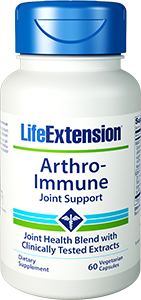- Science & Research
- Science News
- Newsletter
- 2011
- November 22

Newsletter
Newsletter
Meta Analysis Associates Increased Soy Intake With Lower Lung Cancer Risk
Meta-analysis associates increased soy intake with lower lung cancer risk
Tuesday, November 22, 2011. The results of a meta-analysis published online on November 9, 2011 in the American Journal of Clinical Nutrition add evidence to preliminary findings concerning a protective effect for soy against the development of lung cancer. In their introductory remarks, Yong-Bing Xiang of Shanghai Jiaotong University School of Medicine and colleagues observe that approximately one-fourth of the cases of lung cancer that occur worldwide are not caused by the use of tobacco. Although cell culture and animal studies have uncovered inhibitory effects for genistein (a major isoflavone found in soy) against lung cancer, no summary of epidemiologic results concerning soy's association with the disease had yet been conducted. The researchers selected eight case-control and three prospective cohort studies for their review, which included 8,436 cases of lung cancer. All of the studies utilized food frequency questionnaires to estimate soy intake. The analysis uncovered a 23 percent reduction in lung cancer risk in association with high versus low soy consumption. When the analysis was limited to five studies of high quality, a 30 percent reduction was revealed. In analyses of specific groups, significant protective effects were observed for women, never smokers and Asian populations. For studies that documented intake of soy isoflavones, an approximate 27 percent reduction in lung cancer risk was associated with high intake. While unfermented soy foods were associated with a protective effect, fermented foods such as miso were not. "To our knowledge, this is the first meta-analysis to report an association between soy intake and lung cancer risk," the authors announce. Possible estrogen-dependent and independent anticancer mechanisms involve the estrogen receptor (ER) signaling pathway and the epidermal growth factor receptor (EGFR) mediated pathway. "Our analysis indicates that soy intake is associated with lower lung cancer risk," the authors conclude. "Because of the limited number of studies, the findings from our study need to be confirmed in future research in well-designed cohort or intervention studies." | ||||||||||||||||
 | ||||||||||||||||
| ||||||||||||||||
| ||||||||||||||||
 | ||||||||||||||||
| ||||||||||||||||
| ||||||||||||||||
The latest news on aging, nutrition, and vitamins
Lab
Testing
How Life Extension lab testing works











